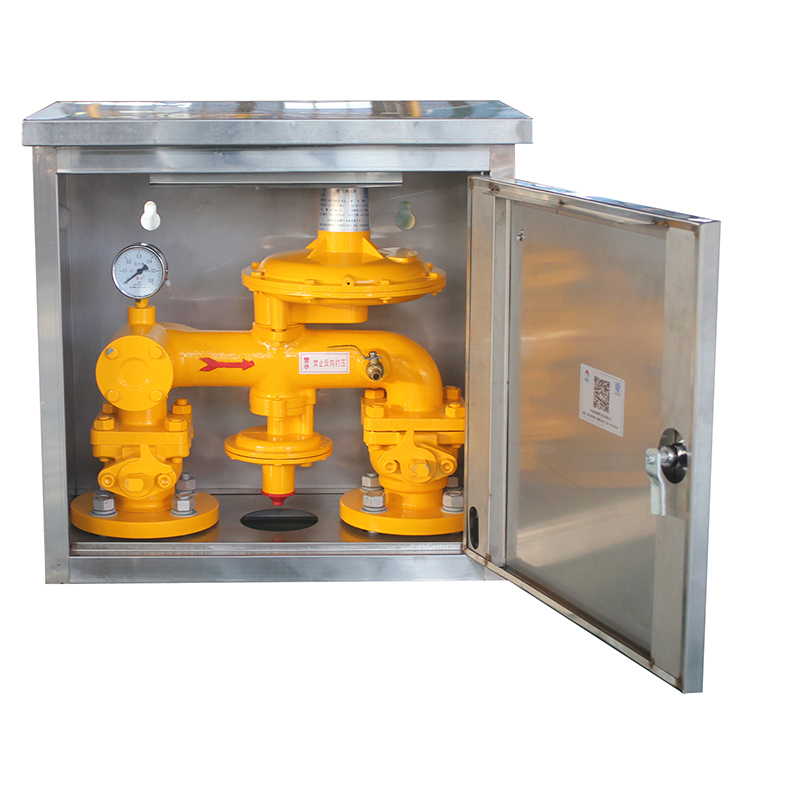
Nov . 10, 2024 23:34
Back to list
Understanding Natural Gas Regulators and Their Importance in Energy Distribution
Understanding Natural Gas Regulators Function, Importance, and Safety
Natural gas has become an essential resource for heating, cooking, and powering various appliances in residential, commercial, and industrial settings. To ensure the safe and efficient use of natural gas, regulators play a critical role in managing the supply and pressure. This article will delve into the functions, importance, and safety aspects of natural gas regulators.
What is a Natural Gas Regulator?
A natural gas regulator is a device that controls the pressure of natural gas as it moves from the distribution pipeline to the appliances within homes or commercial buildings. Gas is supplied at a high pressure to ensure it travels efficiently through long distances. However, high-pressure gas would damage home appliances like stoves, heaters, and dryers. Hence, the primary function of a natural gas regulator is to reduce this pressure to a safe and usable level.
How Does a Natural Gas Regulator Work?
Natural gas regulators operate based on mechanical principles that detect and respond to pressure changes. The main component of a regulator includes a diaphragm that flexes in response to the pressure within the gas line. When the pressure gets too high, the diaphragm pushes against a spring, which opens a valve to release excess gas, thereby reducing the pressure. Conversely, if the pressure drops too low, the valve closes slightly to maintain the necessary pressure level.
There are various types of regulators, including
1. First-stage regulators These are typically installed near the gas meter. They reduce the pressure from the distribution line to an intermediary level.
2. Second-stage regulators These are usually installed closer to the gas appliances, further reducing the pressure to the level required for safe appliance operation.
Importance of Natural Gas Regulators
Natural gas regulators are vital for several reasons
1. Safety The primary role of regulators is to ensure that gas is delivered to appliances at a safe pressure. Excessive pressure can lead to dangerous situations, including gas leaks or explosions. Regulators prevent such occurrences, ensuring the safe operation of gas appliances.
natural gas regulator

2. Efficiency By regulating gas pressure, these devices help maintain the optimal performance of gas appliances. Consistent pressure not only enhances the efficiency of heating and cooking but also reduces energy costs.
3. Environmental Impact Efficient use of natural gas through proper regulation leads to reduced emissions. By ensuring that gas appliances operate within their designed pressure range, regulators help minimize the release of unburned gas into the atmosphere, contributing to lower overall emissions.
4. Regulatory Compliance Many jurisdictions require the installation of natural gas regulators to comply with safety codes and standards. This ensures that residential and commercial properties meet the necessary safety regulations.
Safety Considerations
While natural gas regulators are crucial for safety, proper installation and maintenance are equally important. Here are a few safety considerations
1. Professional Installation Always have a qualified professional install gas regulators. Improper installation can lead to hazardous situations.
2. Regular Maintenance Conduct regular inspections and maintenance to ensure that regulators are functioning correctly. Look for signs of wear, leaks, or corrosion.
3. Monitor Performance Homeowners should be aware of changes in their gas appliances' performance. If appliances are not heating efficiently or if there is an unusual smell of gas, it may indicate an issue with the regulator.
4. Emergency Procedures Residents should be aware of emergency procedures in case of a gas leak. Familiarize yourself with the smell of natural gas (often described as similar to rotten eggs) and how to shut off the gas supply quickly.
Conclusion
Natural gas regulators are essential components of any system that utilizes natural gas. They ensure safe, efficient, and environmentally friendly use of gas, making them crucial for the comfort and safety of countless homes and businesses. Understanding their function and the importance of regular maintenance can significantly mitigate risks associated with natural gas usage. As the reliance on natural gas continues to grow, so too does the importance of having functional and reliable regulators in place.
Latest news
-
Safety Valve Spring-Loaded Design Overpressure ProtectionNewsJul.25,2025
-
Precision Voltage Regulator AC5 Accuracy Grade PerformanceNewsJul.25,2025
-
Natural Gas Pressure Regulating Skid Industrial Pipeline ApplicationsNewsJul.25,2025
-
Natural Gas Filter Stainless Steel Mesh Element DesignNewsJul.25,2025
-
Gas Pressure Regulator Valve Direct-Acting Spring-Loaded DesignNewsJul.25,2025
-
Decompression Equipment Multi-Stage Heat Exchange System DesignNewsJul.25,2025

